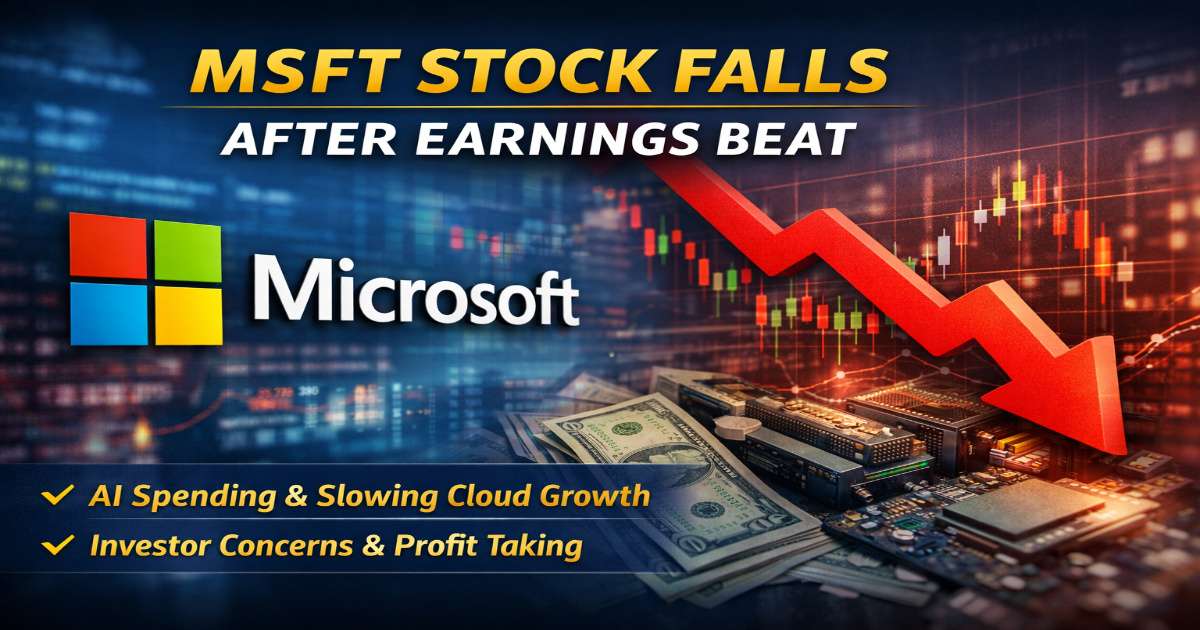Introduction
In the Indian Stock market, we often hear about companies listed on exchanges like NSE and BSE. But what about the companies that are not listed? These are known as unlisted companies, and their shares are called unlisted shares. Over the past few years, many investors have started showing interest in unlisted shares, especially in companies like Tata Technologies, PharmEasy, OYO, and Reliance Retail.
In the world of investing, not all opportunities are found on the stock exchange. Many fast-growing and promising companies operate privately, offering investors a unique chance to invest before they go public. These investment options come in the form of unlisted equity, which is gaining popularity among savvy investors in India. Unlike publicly traded stocks, these shares are not available on NSE or BSE and are typically bought through private deals. This guide will help you understand what they are and how you can invest in them effectively.ow you can invest in them in India.
What Are Unlisted Shares?
Unlisted shares are shares of companies that are not listed on any recognized stock exchange such as the National Stock Exchange (NSE) or Bombay Stock Exchange (BSE). These companies may be startups, pre-IPO companies, or established private firms.
These shares are traded over-the-counter (OTC) or through private placements. The transaction is not governed by a centralised exchange, which makes it slightly more complex but also full of unique investment opportunities.
Why Invest in Unlisted Shares?
Investing in unlisted shares can be a smart move for those looking to diversify beyond traditional stock markets. Here are the key reasons why you should consider investing in unlisted shares in India:
1. Early Access to High-Growth Companies
Unlisted companies are often in their early or growth stages. Investing early can result in multibagger returns once the company gets listed or expands significantly.
2. Pre-IPO Advantage
Buying shares before an IPO allows you to benefit from the listing gains, especially in well-known upcoming IPOs like Tata Technologies, PharmEasy, and OYO.
3. Portfolio Diversification
Unlisted shares are less correlated with market volatility, which helps diversify your portfolio and reduce overall investment risk.
4. Discounted Valuation
Since unlisted shares don’t have a publicly traded price, they are often available at a discounted valuation compared to their listed peers.
5. Invest in Brands You Know
You can invest in popular and trusted Indian brands like Reliance Retail, CSK (Chennai Super Kings), and HDFC Securities—companies you use in daily life but are not yet publicly listed.
6. Growing Unlisted Market Ecosystem
The unlisted market in India is maturing with the rise of specialized dealers and digital platforms, making it more accessible and secure for retail investors.
How to Buy Unlisted Shares
Buying unlisted shares requires a different approach compared to listed stocks. Here are the common methods:
1. Through Unlisted Share Dealers
Many brokers and firms specialize in unlisted shares. Examples include:
2. Employee Stock Ownership Plans (ESOPs)
Some companies allow employees to sell their ESOPs to outside investors, which become available as unlisted shares.
3. Buying from Existing Shareholders
You can directly buy shares from current shareholders or angel investors looking to exit.
4. Through PMS (Portfolio Management Services) and AIFs (Alternative Investment Funds)
Some PMS or AIFs invest in unlisted companies and allow investors to participate.
Definition Of Unlisted Shares
An unlisted share is any security or financial instrument that’s available for trade on over-the-counter markets and is also known as over-the-counter (OTC) securities.
Typically, unlisted companies do not trade on any formal stock exchange. This is because smaller or newer firms do not choose to or cannot comply with certain requirements such as listing fees, market capitalization, etc.
Types Of Unlisted Financial Instruments
The most common type of unlisted financial instrument is the common stock. Most of these unlisted stocks trade on the OTC markets. Other instruments include:
- Penny stocks
- Corporate bonds
- Government securities
- Derivative products like swaps, etc.
Key Features of Unlisted Shares
- No public listing: Not traded on NSE or BSE.
- Higher risk: Due to lack of liquidity and transparency.
- High growth potential: Early investment in promising companies.
- Limited availability: Only available through specific dealers or platforms.
- Regulatory framework: Governed by SEBI and the Companies Act, 2013.
Why Do Companies Remain Unlisted?
There are several reasons why a company might choose to remain unlisted:
- To avoid regulatory compliance burden
- Lack of need for capital through public markets
- Preference for private equity or VC funding
- Company is still in early growth or restructuring phase
Benefits of Investing in Unlisted Shares
Early Entry
You can invest before the company becomes a market giant. This gives you a chance to grow with the company.
High Returns Potential
If the company eventually gets listed (IPO), your investment value may multiply significantly.
Portfolio Diversification
Unlisted shares add variety to your investment portfolio.
Access to Pre-IPO Companies
You can buy shares of companies planning to go public soon, such as Tata Technologies, NSDL, and OYO.
Risks of Investing in Unlisted Shares
Low Liquidity
It is difficult to sell unlisted shares quickly due to a limited number of buyers.
Price Discovery Issues
Prices are not publicly available and may vary between buyers and sellers.
Regulatory Risks
Fewer regulations can sometimes mean less protection for investors.
Longer Holding Periods
Unlike listed shares, unlisted shares may require a long-term commitment.
Differences Between Listed and Unlisted Shares
| Feature | Listed Shares | Unlisted Shares |
|---|---|---|
| Meaning | Shares of companies traded on stock exchanges (NSE/BSE) | Shares of companies not listed on any stock exchange |
| Trading Platform | Traded on public stock exchanges | Traded over-the-counter (OTC) or through private placements |
| Liquidity | Highly liquid, easy to buy and sell | Low liquidity, fewer buyers and sellers |
| Price Transparency | Real-time price available on exchanges | Price negotiated privately, no standard valuation |
| Regulatory Oversight | Strictly regulated by SEBI and exchange norms | Lesser regulatory scrutiny, though still under SEBI/ROC |
| Investment Accessibility | Easily accessible to all retail investors | Generally accessed via dealers, platforms, or insiders |
| Risk Level | Comparatively lower risk | Higher risk due to low transparency and liquidity |
| Returns Potential | Moderate to high, based on market performance | High if the company lists or grows rapidly |
| Examples | Infosys, Reliance, HDFC Bank | Tata Technologies, PharmEasy, Reliance Retail |
| STT (Securities Transaction Tax) | Applicable | Not applicable |
List of Unlisted Shares in India (2025)
| Company Name | Sector | Status |
|---|---|---|
| Tata Technologies | Auto Engineering | Pre-IPO |
| HDFC Securities | Financial | Established |
| PharmEasy | Healthcare | Pre-IPO |
| Reliance Retail | Retail | Established |
| OYO | Hospitality | Pre-IPO |
| Chennai Super Kings | Sports/Entertainment | Active |
| Capgemini India | IT Services | Private |
Key Takeaways
- Unlisted shares are stocks of companies not listed on NSE or BSE, traded privately through dealers or platforms.
- These shares offer high growth potential, especially in pre-IPO companies.
- Liquidity is low, and prices are not transparent like listed shares.
- You can buy unlisted shares via brokers, employees (ESOP), or platforms like UnlistedZone and Planify.
- Taxation differs from listed shares: LTCG is taxed at 20% with indexation after 2 years.
- Ideal for investors looking to diversify portfolios and gain early exposure to future IPO stars.
- Always conduct proper research and risk analysis before investing.
Final Thoughts
Unlisted shares’ market may seem less crowded, more personal, and full of potential. It’s not about chasing quick wins but backing stories before they become headlines. For investors who enjoy being early believers, asking the right questions, and thinking long-term, this space might just be their kind of playground. Remember, every big opportunity starts quietly.
FAQs
Is it legal to buy unlisted shares in India?
Yes, investing in unlisted shares is completely legal in India, regulated under SEBI and the Companies Act, 2013.
How can I buy unlisted shares in India?
You can buy through specialized dealers, platforms like UnlistedZone, or from employees (ESOP sales) and existing shareholders.
Do I need a demat account to buy unlisted shares?
Yes, a demat account is mandatory to hold and transfer unlisted shares in electronic form.
Are unlisted shares risky?
Yes, unlisted shares come with higher risks such as low liquidity, price uncertainty, and limited exit options.
Can I sell unlisted shares anytime?
Not easily. Selling unlisted shares requires a buyer, usually through brokers or during a company’s IPO or buyback.
Popular unlisted companies in India?
Some popular unlisted companies include Tata Technologies, Reliance Retail, HDFC Securities, PharmEasy, and CSK.
What kind of taxes are associated with investing in unlisted companies?
The taxable percentage for long-term capital gains from investing in unlisted companies is 20%. You are subject to an indexation benefit, where you can add the cost of inflation to ease out the taxation. The holding period generally is for a minimum of 2 years.
Conclusion
Unlisted shares offer a gateway to early-stage investment opportunities and potentially high returns. However, they also come with their own risks and challenges. If approached cautiously and after thorough research, investing in unlisted shares can be a rewarding part of your investment strategy.
Start your journey Today and explore the word of unlisted investments.
Disclaimer
This blog post is for informational and educational purposes only and does not constitute financial, investment, or legal advice. Investing in unlisted shares involves risk, including loss of capital and limited liquidity. Please conduct your own research or consult a SEBI-registered financial advisor before making any investment decisions. The author or publisher is not responsible for any financial loss incurred based on the information provided.








